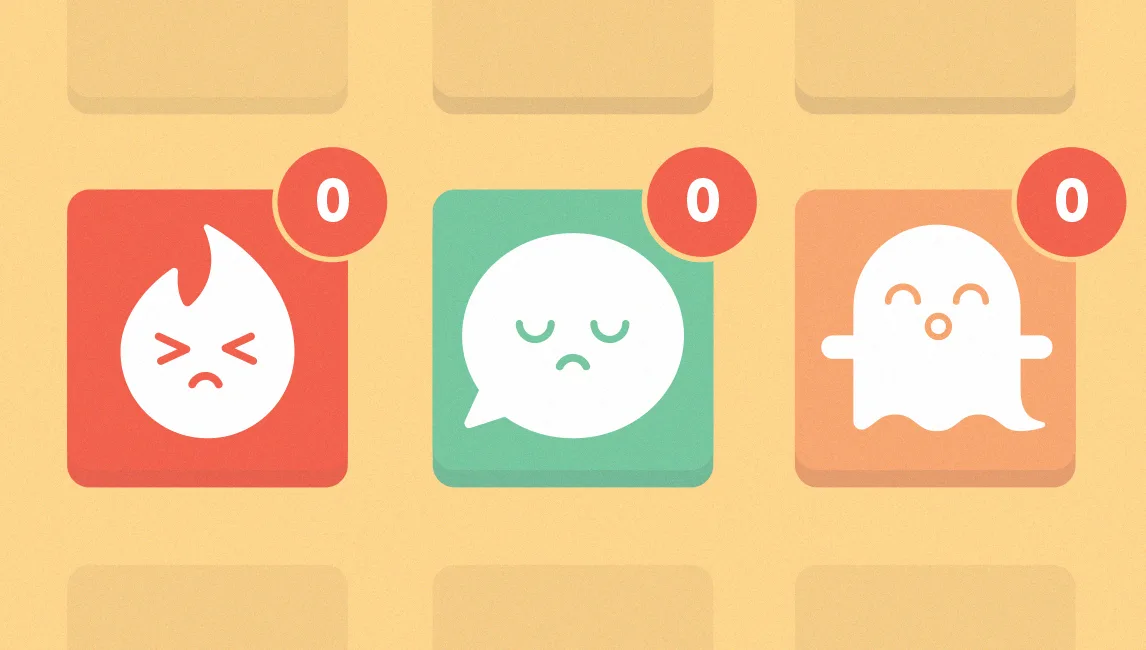Has your date gone radio silent?
Ghosting is an all-too-common exit strategy in our technological landscape. If you don’t like the person you’re dating after, say, two months, you have the option of virtually dropping off the face of the earth.
Not interested? Don’t answer their texts, calls, messages … and definitely don’t give them a reason. Why is it, in an age where we’re all hyper-connected, we think it’s OK to practice the discourtesy of radio silence? Though it has been recognized as a bona fide word by the likes of The Huffington Post, The New York Times, Elle Magazine and Psychology Today, our best definition for the phenomenon comes from Urban Dictionary. They define ghosting as “the act of suddenly ceasing all communication with someone the subject is dating, but no longer wishes to date. This is done in the hopes that the ghostee will just ‘get the hint’ and leave the subject alone.” It’s pretty ubiquitous: a YouGov/Huffington Post Poll of 1,000 individuals showed that 11 percent had ghosted others and 13 percent had been ghosted themselves. In another less formal survey in Elle Magazine, 46 percent of men and 52 percent of women said they’d been ghosted at some time or other.
So you’ve been ghosted. What hurts the most? According to this Thought Catalog article, it’s the indifference. “The only thing worse than being broken up with,” writes author Heidi Priebe, “is realizing that someone didn’t even consider you worth breaking up with.” While ghostees are haunted by an insulting and unsatisfying lack of closure, ghosters aren’t necessarily getting off the hook pain-free. Ghosting comes with its own flavor of moral discomfort, with most ghosters stating that they feel at least a little guilty after the fact. Still, at the end of the day, many seem to feel that silence is better than having to deal with conflict. Could the problem be that we don’t know how to say “no”? Because we don’t really have to say it now that the fade-away technique is in vogue. As Claire Fallon writes in her Huffington Post article on the subject, “we have a become a nation of wafflers and avoiders, carefully evading even the most quotidian confrontation.” We don’t want to say “no” because we don’t want to disappoint and by abruptly ending communication we’re only vaguely letting people down. Not definitively. To be sure, aversion to being cast in a negative light is nothing new—not by any stretch. But whereas we might have before postponed dates, asked our friends to deliver the bad news, or at least picked up the phone to call it quits, the trend of going radio silent ushers in a new era.
According to MIT professor Sherry Turkle, there are consequences to our wishy-washy dating behaviors. Ghosting, or as she calls it, the “nothing gambit,” is disturbing because it compromises our ability to empathize. It’s now considered acceptable to respond to somebody’s message/call/email with nothing, something that we would never be able to do face to face. We get used to being treated as though we can be ignored and we then begin to think that that it is OK to do the same to others. Ultimately, she says, we recontextualize feelings (e.g., it was only two dates, it would be weird for them to feel anything), and we shut ourselves off to an entire spectrum of emotion. Considering the number of interactions that start via apps like Tinder, potential online suitors are in particularly vulnerable positions. As one ghoster explains in a Huffington Post article, “Even after one or two dates [the people you meet online] are still a profile to you, not a person. I don’t feel the normal empathy I would for someone I met organically.” It is important to remember that each and every person we interact with is a person. Not a phone number, or a string of text messages, or a sum total of the pictures they’ve uploaded online. Next time when faced with an uncomfortable task of ending a relationship, consider: what would you say to them if you were face-to-face? Be mindful of the fact that there are feelings (no matter how big or small) at the other end of the line, and that sometimes bad news is better than no news at all.

Many seem to feel that silence is better than having to deal with conflict.
Lara Andersson


Be kind to your mind
- Access the full library of 500+ meditations on everything from stress, to resilience, to compassion
- Put your mind to bed with sleep sounds, music, and wind-down exercises
- Make mindfulness a part of your daily routine with tension-releasing workouts, relaxing yoga, Focus music playlists, and more
Meditation and mindfulness for any mind, any mood, any goal

Stay in the loop
Be the first to get updates on our latest content, special offers, and new features.
By signing up, you’re agreeing to receive marketing emails from Headspace. You can unsubscribe at any time. For more details, check out our Privacy Policy.
- © 2025 Headspace Inc.
- Terms & conditions
- Privacy policy
- Consumer Health Data
- Your privacy choices
- CA Privacy Notice
